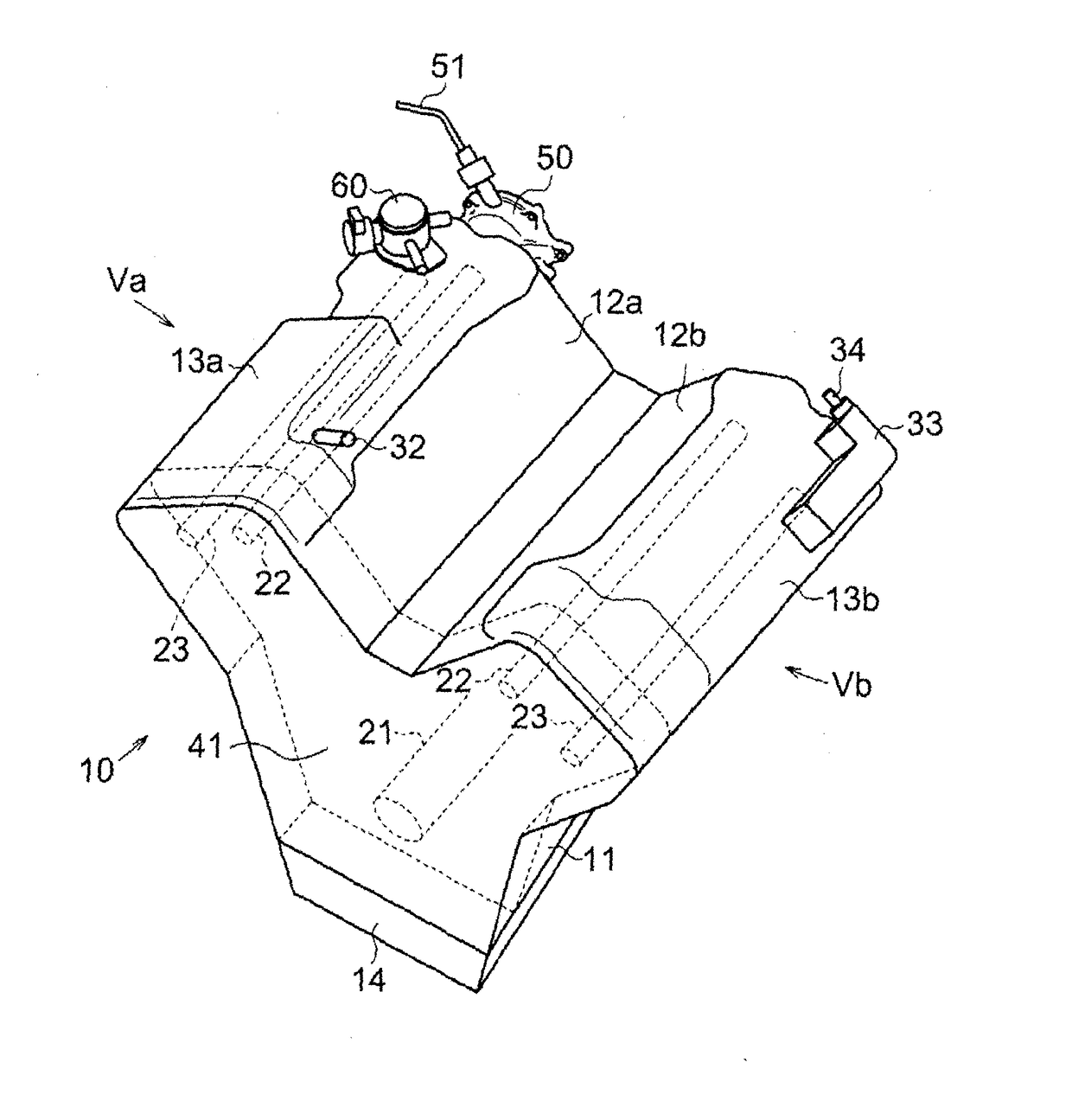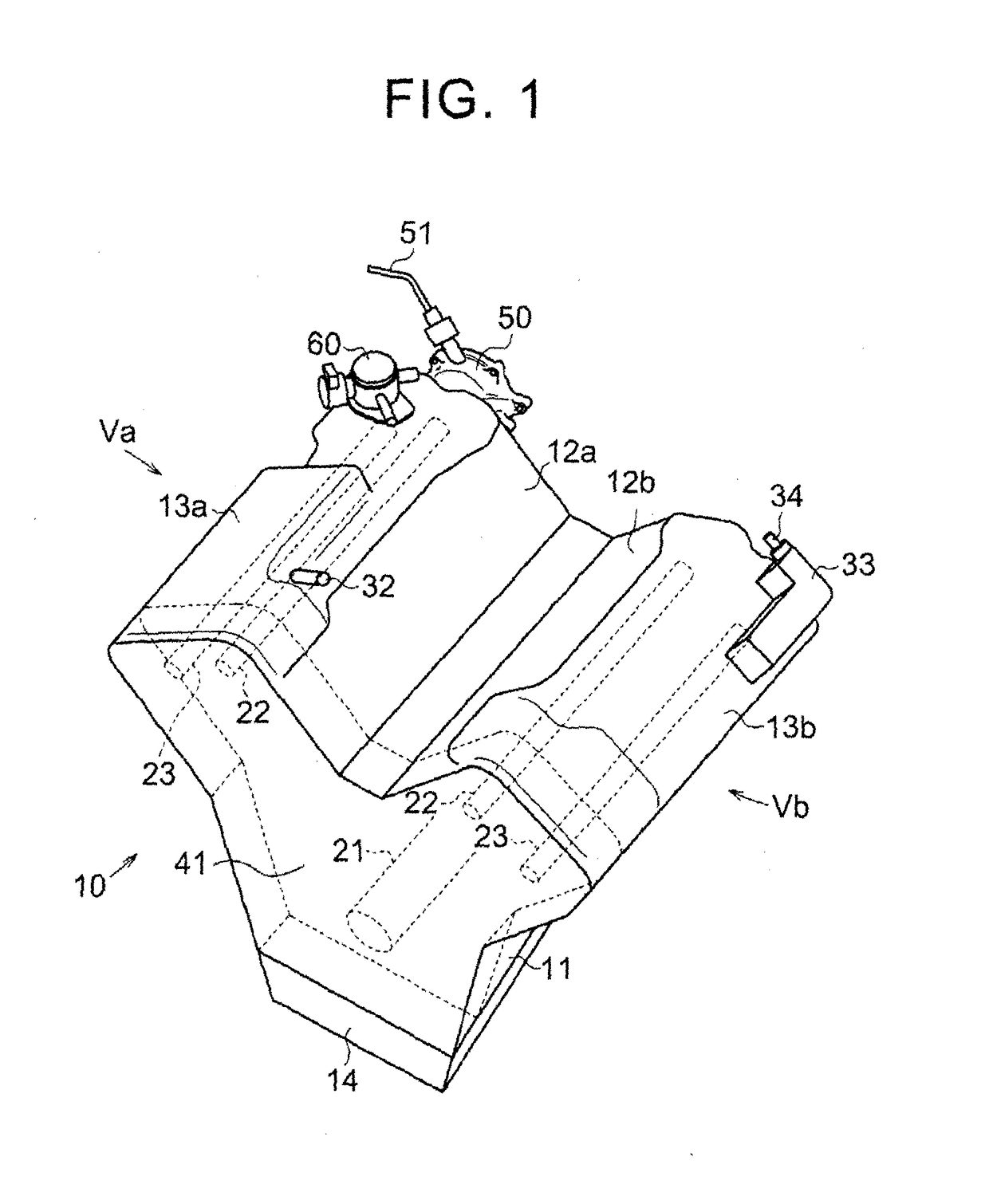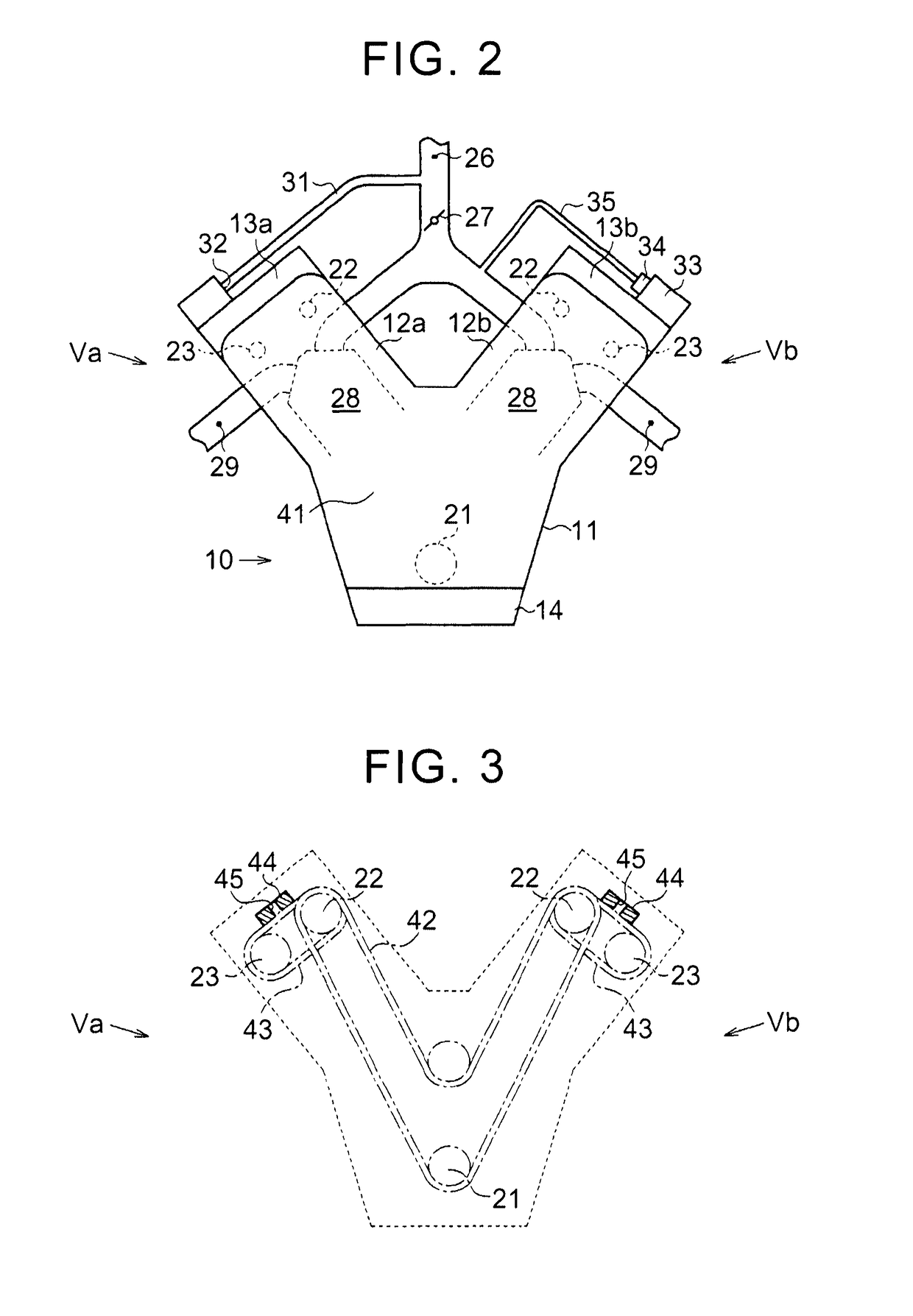Internal combustion engine
a combustion engine and combustion chamber technology, applied in the direction of machines/engines, valve drives, auxilaries, etc., can solve the problem that the oil mist discharged from the vacuum pump may not be able to be collected, and achieve the effect of large particle diameter and easy collection
- Summary
- Abstract
- Description
- Claims
- Application Information
AI Technical Summary
Benefits of technology
Problems solved by technology
Method used
Image
Examples
Embodiment Construction
[0024]Hereinafter, one example embodiment of the internal combustion engine of the invention will be described with reference to FIGS. 1 to 7. An internal combustion engine 10 according to this example embodiment is a V-type internal combustion engine with two banks Va and Vb of cylinders. The internal combustion engine 10 includes a crank case 11 that supports a crankshaft 21, a cylinder head 12a that forms the bank Va, and a cylinder head 12b that forms the bank Vb. An oil pan 14 is attached to a lower portion of the crank case 11.
[0025]An intake camshaft 22 that drives an intake valve and an exhaust camshaft 23 that drives an exhaust valve are supported, side by side in parallel, by the cylinder head 12a. Similarly, an intake camshaft 22 and an exhaust camshaft 23 are supported, side by side in parallel, by the cylinder head 12b. That is, each of the banks Va and Vb is provided with an intake camshaft 22 and an exhaust camshaft 23 side by side.
[0026]Also, a head cover 13a is moun...
PUM
 Login to View More
Login to View More Abstract
Description
Claims
Application Information
 Login to View More
Login to View More - R&D
- Intellectual Property
- Life Sciences
- Materials
- Tech Scout
- Unparalleled Data Quality
- Higher Quality Content
- 60% Fewer Hallucinations
Browse by: Latest US Patents, China's latest patents, Technical Efficacy Thesaurus, Application Domain, Technology Topic, Popular Technical Reports.
© 2025 PatSnap. All rights reserved.Legal|Privacy policy|Modern Slavery Act Transparency Statement|Sitemap|About US| Contact US: help@patsnap.com



